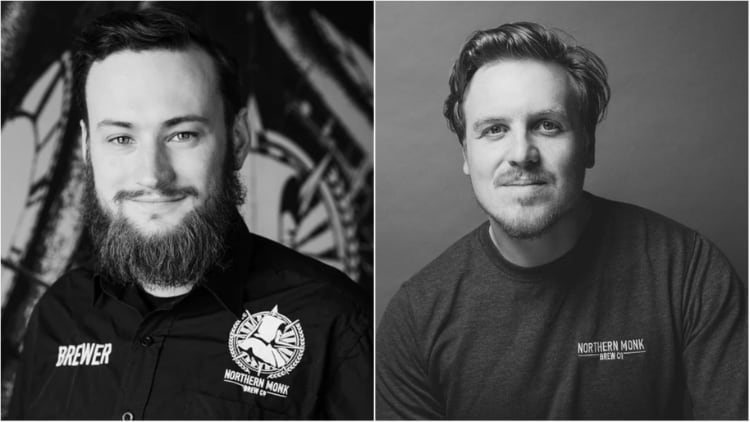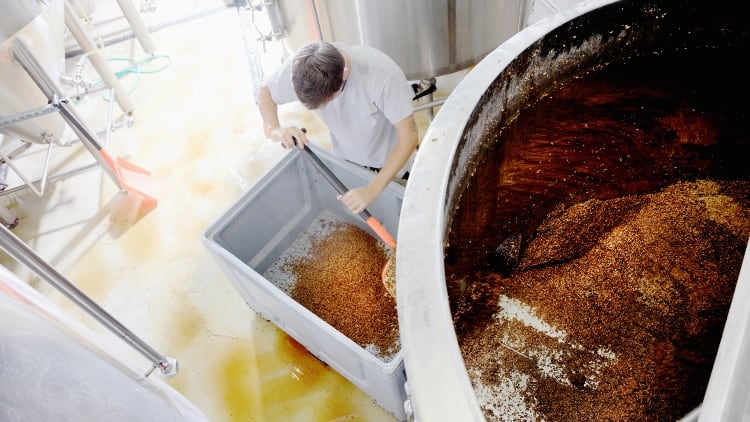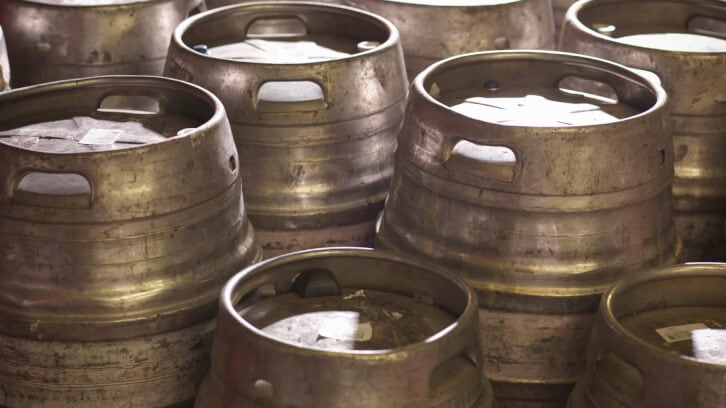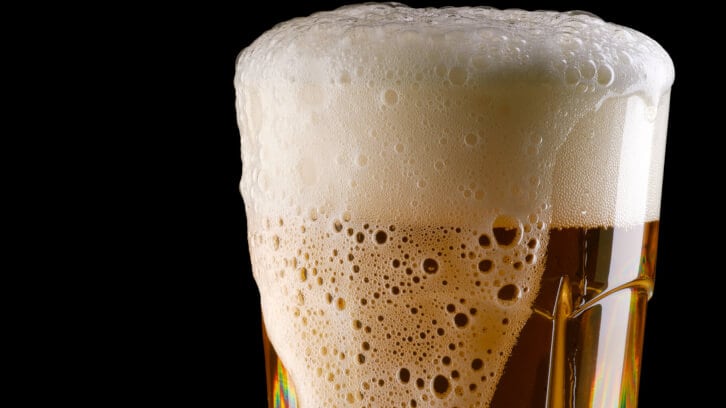Earth Day, which is celebrated annually on 22 April, is a global demonstration of support for environmental protection with the main theme this year being ‘Planet versus Plastics’.
Craft brewer Northern Monk, together with Toast and Muntons Malt, have brewed a beer using regenerative grain and surplus bread to celebrate Earth Day 2024.
Using regenerative barley from Muntons, and fresh, surplus bread supplied by Toast, which makes a 5.0% ABV Pale Ale called One for the Earth, the trio is backing Earth Day.
Leeds-based Northern Monk said 60% of the grain used is regenerative agriculture malt from a single farm in Yorkshire where the Muntons farming process helps improve soil quality and biodiversity.
A further 10% of the grain bill comes from surplus bread product that would otherwise have gone to waste as used by Toast.
A portion of rye malt, alongside bread crumb, “for a golden hue and an earthy, spicy depth alongside the usual mouthfeel-boosting properties of flaked oats” completes the recipe ingredients.

Northern Monk positive impact director Ciaran Shier said: “The concept for One for the Earth first started last year when we were given the opportunity by our malt supplier, Muntons, to procure regenerative agriculture malt from a single pioneering farm near our home in Yorkshire.
“Having learned about the positive impact regen agriculture has on soil health, biodiversity and carbon emissions we jumped at the opportunity to bring some into our supply chain.
“Earth Day presented us with an ideal opportunity to brew our first beer with this malt but we wanted to take it one step further by combining it with an abundant food waste – bread. So we reached out to the experts at Toast for their advice and they helped bring the concept to reality.
“We are very mindful of our environmental impact and are on a mission we call Faith in Futures to improve our positive impact on the planet which includes being carbon neutral in our direct emissions by 2030.
“Collaborating with two other like-minded businesses in Muntons and Toast Ale to produce One for the Earth is an exciting step for the Faith in Futures project by exploring what is possible in producing a beer that’s better for the planet.”
Cutting carbon footprint
Meanwhile, Bedford-based brewer and pub company Wells & Co has announced a partnership with anaerobic digestion (AD) plant Biogen that sees one of the brewer’s waste products generate value and helps cut out some of its carbon footprint.
Wells & Co’s home of Brewpoint, which is a large brewery on the edge of Bedford, generates up to 10 tonnes of spent grain a week as a natural byproduct of the brewing process. Nearby neighbour Biogen takes the spent grain to generate energy that powers homes.
Wells & Co sustainability manager Ed Robinson said: “For several years now the food waste from our UK managed pubs has been put to good use via anaerobic digestion, a process in which bacteria break down organic matter without oxygen. As the bacteria consume the food waste, they give off biogas which can be used for a wide variety of functions, including powering homes.
“Perhaps the largest source of food waste we generate is spent grain and last summer we got talking to Biogen.
“Fast-forward to autumn 2023 and our plan was up and running: Brewpoint’s spent grain now finds a happy home at Biogen’s AD plant, where it’s used to generate renewable energy to power homes in our local community and digestate – a natural fertiliser that’s a by-product of the AD process – to spread on local fields.
“It’s reducing the operating emissions of our brewery while making for a smooth, user-friendly process for our brewing team– that’s a win-win as far as we’re concerned.”
Sustainability activists
Research from CGA by NIQ explained what businesses have to do earn the spend of eco-conscious consumers.
In its January edition of CGA’s OPUS survey, it found more than two thirds (68%) of British consumers now try to lead an environmentally friendly lifestyle and this heavily influences their spending, with 47% and 41% of consumers proactively choosing sustainable food and drink brands respectively.
It also discovered more than four in five (84%) are willing to pay more for food and drinks if they come from sustainable sources.
The segmentation highlights the spending power of these eco-engaged consumers and while ‘sustainability activists’ account for less than a third of all consumers (31%) they make up almost half (48%) of on-trade visits.
They also like to experiment and upgrade their choices, and are five and six percentage points more likely than average to like trying new or different drinks brands or pay more for a better quality drink.
CGA said Earth Day provides a good opportunity for brands to show their environmental credentials. Key areas for businesses to focus on include social responsibility, recycled and recyclable materials, local sourcing and waste reduction initiatives.
Additionally, CGA’s Business Leaders’ Survey shows how sustainability matters to restaurants, pubs and bars as well as consumers with 47% of leaders saying their business is becoming more sustainable and two thirds (68%) plan to invest in green technology over the next three years.
CGA by NIQ client director Violetta Njunina said: “Our research makes it clear consumers and business leaders are both more engaged with sustainability than ever before.
“Reaching the core of environmentally aware adults is crucial to securing their spend and loyalty, and our segmentation makes it easy to understand their attitudes.
“These people are willing to spend freely if they see good sustainability practice, so identifying their top priorities and tailoring sales stories to them can make them much more likely to embrace a brand in the on-premise.”
- To read an interview with Northern Monk founders Russell Bisset and Brian Dickson, click here.




